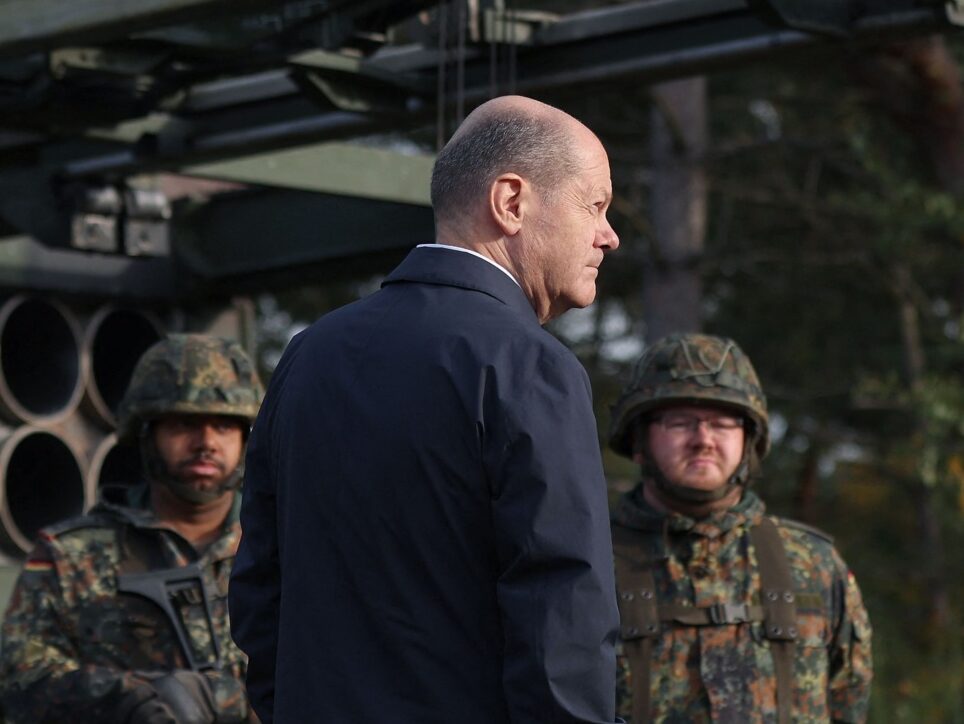Germany’s left-wing Chancellor has ordered that his country’s three remaining nuclear power plants be kept online beyond the end of this year in a move that has prompted outrage from climate crazies.
Members of Germany’s Green party are furious after the country’s ruling Chancellor, Olaf Scholz, ordered that the country’s remaining nuclear power plants be kept in operation beyond 2022, reversing an earlier plan to have the facilities decommissioned by January 1st 2023.
However, despite the gnashing of teeth from many within the radical green group, Scholz’s extension is earmarked to last no longer than mid-April, raising questions as to exactly how the German government expects to keep the country’s lights on next winter, with it likely that whatever energy reserves the country has managed to scrounge up by this point will be almost completely expended in the coming months.
According to a report by Die Welt, Scholz’s order to keep all three nuclear power plants that currently remain in the country puts to bed a long-running dispute between Green Party and Free Democratic Party (FDP) politicians within his coalition.
Despite ongoing hardship to do with energy supplies in the country, the former had wanted to see two of the three nuclear power plants kept in operation in reserve only, with the third being shut down as planned.
However, openly siding with the FDP, Scholz has used his powers as Chancellor to order that all three plants remain in active service for the time being, under the caveat that all three plants must be shut down by April 15 2023 ” at the latest”.
The decision has been hailed by fellow coalition members within the FDP, with Christian Lindner, the party’s head, saying that Scholz has now created “clarity” for Germany with the move.
Meanwhile, while major players within the country’s Green party have attempted to gracefully accept the decision, more minor members have taken to social media to attack the Chancellor over the decision.
“Sorry but this ‘that’s that’ policy is damn bad style,” the leader of the party’s youth wing, Timon Dzienus, wrote online, claiming that Germany did not need at least one of the nuclear power plants being kept online by Scholz.
Other figures within the party have taken to questioning the legal basis Scholz has for making the decree, with individual ministers supposedly having the legal prerogative to control their own sections of government without the approval of the Chancellor.
While the insinuation here appears to be that Green party ministers could legally avoid acknowledging the order from Olaf Scholz, the point appears to ultimately be academic, with the country’s Green party minister for climate, Robert Habeck, ultimately saying that he can “work” and “live” with the premier’s decision.
However, despite angering a variety of green agenda-loving bigwigs in the country, the temporary nature of Scholz’s extension raises questions as to exactly how the country plans to haul itself through the winter of 2023-2024.
While there are questions as to whether Germany will be able to escape the coming months without blackouts and gas shortages, the country’s gas reserves that were filled over the summer will likely go a long way to staving off the cold and dark.
Things may end up being very different next year if trends continue though, with the country likely to have massively depleted such supplies by the end of winter while the lack of Russian gas in the western market is likely to make replenishing any expended gas more difficult.
To make matters worse, such a cycle of gasless summers and cold winters could continue for years, with Belgium’s energy minister warning earlier this year that the entirety of the EU is facing into an era of energy insecurity that could last a decade.
“The next 5 to 10 winters will be terrible if nothing is done,” minister Tinne Van der Straeten wrote. “We must act at the source, at European level, and work on freezing gas prices.”
